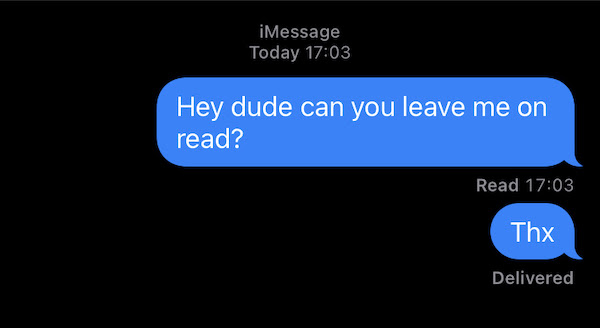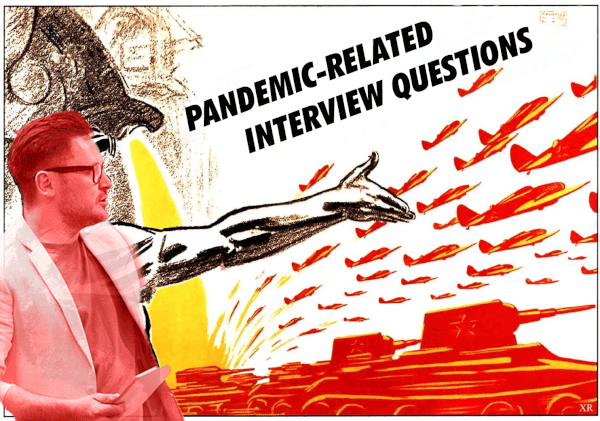Welcome to Sidekick by Kickresume — your trusty companion to all things career (that won’t bore you to death).This time about what makes working from home wonderfully productive and how to prepare for weird pandemic-related job interview questions.
Wanna ask your boss for work-from-home-days? Slap them with this study (jk)
The recent “stay-at-home-to-socially-distance” adventure proved one thing that most managers were unwilling to admit — remote work works. Here we are today with science to back it up.
We’re talking about a 2-year old Stanford study the results of which surprised even its designer, professor Nicholas Bloom. He had expected that pros and cons of remote work vs on-site work would balance each other out, and the results would be neutral.
But boy, was he wrong.
The five-hundred people study resulted in “an astounding productivity boost among the telecommuters equivalent to a full day's work.”
The stay-at-home employee group worked a full shift, took shorter breaks and had fewer sick days, while also being less distracted and more focused on the tasks at hand (How the…? More on that one in the next article).
If you’re considering knocking on your manager's door to ask for a couple of remote work days per week, bring this study with you. After all, it’s from Stanford. Only people who are also from Stanford can argue with that.
Also, you may want to start off by asking just for some remote work days, not a full week, the study suggests. Working from home all the time may often feel isolating. In fact, more than 50% of the surveyed remote employees wouldn't want to work from home all the time.
And after a pandemic year like this one, I bet it’d be closer to 100 percent.
Read full post: A 2-Year Stanford Study Shows the Astonishing Productivity Boost of Working From Home by Scott Mautz (inc.com)

Asynchronous communication is kind of like when leaving your co-workers on “read” makes them more productive
Tons of studies — just like the one above — have already confirmed that the remote work productivity apocalypse simply wasn’t going to happen. Quite the opposite.
Employees, managers, even entire teams experienced a surge in productivity. And it wasn’t just the “staring at the computer screen for more hours a day and pretending to be connected” kind of productivity. Real tasks got done, plans were followed, KPIs and goals reached.
We just want to point out one not-so-obvious aspect that made it happen. One which all of us can take with us once we go back to our office’s espresso machines.
We are talking about asynchronous communication, or async. What's that?
One great example of async communication is email — you are not expecting an immediate response, hence you are not forced to sync with your colleague and their schedule. On the other hand, a team meeting is the perfect example of synchronous communication — everybody’s in the same room at the same time.
If there's one thing we'd love you to take away from this newsletter, it's this list of practical tips on how to support async communication in your team:
- Overcommunicate when writing a message — include details, be thorough in explanations, clear about deadlines and tasks;
- Plan ahead — give your colleagues some leeway in deadlines, don't expect them to provide feedback “within the next hour”;
- Be sure you really shared the document — asking for access again leads to huge delays;
- Provide all relevant information before a meeting — so that the team can come prepared and the discussion begins right away. Then document the discussion and its main outcomes;
- Mute notifications — yes, all of them;
- Wait productively— you can still move on with other tasks while waiting for a reply, no need to sit idly.
Be the one who brings the async culture from the confines of your home office to your actual office. It will pay off. But keep in mind, there are times and situations where sync communication is more effective. More on that in the full article.
Read full post: Asynchronous Communication: The Real Reason Remote Workers Are More Productive by Amir Salihefendic (blog.doist.com)

Beware! Recruiters got a new tool in their arsenal: pandemic-related interview questions
Okay, here’s one more story about the pandemic affecting something that used to be relatively mundane but now it carries hints of the narrowly escaped apocalypse.
It seems like recruiters are beginning to ask job seekers pandemic-related questions at their job interviews.
If you’re searching for a new job, you might consider adding these questions to your preparing-for-the-interview checklist. There's a pretty good chance you'll stumble upon at least some of them.
Put together by Fast Company and based on insights from talent acquisition managers, recruiters, and career consultants, here they are:
- Were you afraid of losing your job? The recruiter wants to know more about your motivation in leaving the current employer.
- How did your company and managers approach communication during Covid? The goal is to find out if and how you took ownership of remote communication within your team.
- How did you react and what did you do if you actually had lost your job? If you guessed that “sat in front of TV, slept and felt miserable” is not what the hiring manager wants to hear, you were right.
- What did your remote communication look like? Recruiters want to learn if you are flexible enough in trying out new tools and methods of communication.
- Have you worked remotely even before the pandemic? If you have remote work experience, it's easier for the manager and the team to get you onboard and “stay on track with productivity.”
- How have you adapted to the change? Don't be afraid to mention skills you gained during your remote-work evolution, as well as how you'd coped with the new situation.
- How do you clock out? One of the most challenging tasks — turning off the computer after-hours. Did you take ownership of the situation and found a way to avoid a burnout?
- What makes you excited to get up in the morning? Seems a bit cheesy, but you should convince the future employer that you have goals and aspirations in life even when times are challenging.
That's it. Now it's your turn to grab the opportunity and try to land that new job. Who knows, it might fit well with your fresh post-covid (re)start!
Read full post: 8 pandemic-related interview questions you should be ready to answer by Stephanie Vozza(fastcompany.com)
SOME JOB SEARCH THINGS YOU (ALMOST) MISSED
- How to Answer: “Why Should We Hire You?” [+12 Examples]: The amount of people who freeze when asked the job interview question “Why should we hire you?” is too damn high! If you’re one of them, this article can help you unfreeze.
- How to Become a Human Resources Manager: Degrees, Training & More: If you want to turn the tables on job search itself and instead of searching for a job you’d prefer searching for talent, this piece is a good place to start.
- How to Find and Get a Job Fast? 8 Proven Tips from an HR Expert: It doesn’t matter how short it is, job search always takes longer than you’d like. In this article, a seasoned HR expert shares her best tips that can help you find your next job a bit faster.

YOU WON’T BELIEVE THIS CAREER ADVICE
Hear! Hear! Kickresume’s resident HR expert Christy Morgan is about to dispense useful advice for when your job search isn’t going that well.
- How many job rejections are normal?
“Definitely don’t freak out after your first rejection. I’d say at least five or six rejections is when you should start to look at where things might be going wrong. But of course, this number also depends on how many jobs you’re applying for.”
- What might be the reasons?
“The vast majority of applications that are rejected are mostly down to two things. First one is that a large percentage of people apply for jobs they aren’t suitable for. The second one is something that everyone has to be aware of, and it’s that a lot of jobs these days get huuuge number of applications.”
- Should I send a rejection follow up email?
“At the beginning of the application process where you usually only get a generic rejection, it’s not necessary. Once it gets to the personal connection stage, then I feel like it should be much more personal. That’s when you can send a rejection follow up.”
Need more tips? Check out the interview with our resident recruiter: Recruiter Reveals: This Is Why You Can’t Get a Job(+What to Do About It)



